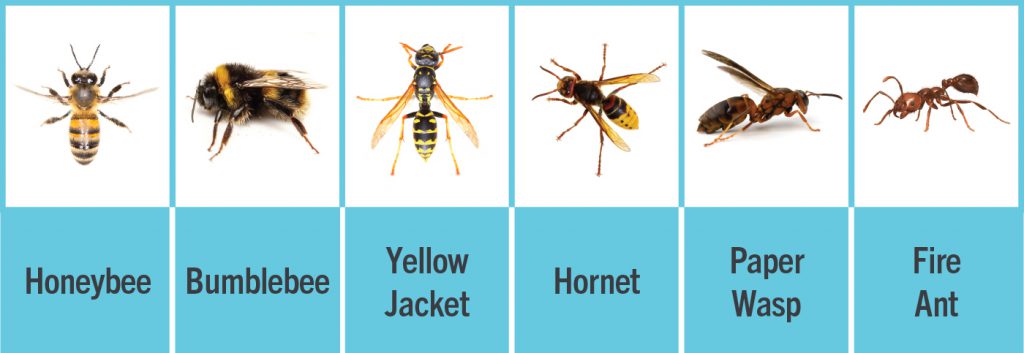Insect encounters are frequent occurrences, especially here in the Lowcountry. Most insect stings are minor nuisances that cause a small amount of swelling, pain and redness of the skin. These normal responses are usually treated by cleaning the sting site and applying a cold compress to relieve pain. However, up to 40 million Americans could be at risk for more severe reactions caused by an allergy to stinging insect venom.
What are stinging insects?
The most common cause of insect stings and allergic reactions in the Lowcountry are fire ants. Fire ants are found throughout the Southern U.S. They build nests in dirt mounds.
Stings often occur by many ants at once on the hands or feet after a colony mound has been stepped in or disturbed. A fire ant sting injects venom that causes an itchy bump that changes to a small blister in a few hours. These blisters will heal over 7 to 10 days but can become infected if scratched or not kept clean. For people with a fire ant allergy, the venomous sting can cause a serious allergic reaction that can be life-threatening.
People with a severe allergy to a stinging insect have a 60% chance of having an allergic reaction with each future sting.

What are the symptoms of an insect sting allergy?
Hives, itching and/or swelling in other areas than the sting site
Chest tightness or difficulty breathing
Cough, throat swelling or difficulty swallowing
Abdominal pain, vomiting, diarrhea
Dizziness, loss of consciousness
If you have had a reaction to an insect bite or sting, a board-certified allergist can help. The allergist will take a full history to find out what type of reaction occurred. Allergy testing through a skin test or blood test can identify allergy antibodies to stinging insects and confirm the diagnosis of an allergy. Your allergist will then be able to recommend the best treatment to prevent severe allergic reactions in the future. Recommendations include ways to avoid stinging insects, medications to be used during any future reactions and venom immunotherapy (allergy shots).
What is venom immunotherapy?
Immunotherapy, also known as allergy shots, can be a lifesaving treatment for people with stinging insect allergy. Studies show that immunotherapy reduces the risk of a severe stinging insect reaction by 95% and reactions that do occur are milder. Immunotherapy is also effective at preventing large local reactions that are particularly bothersome or debilitating. When it comes to finding a treatment or “cure” for insect allergies, immunotherapy is usually the best option, as it is likely to provide permanent desensitization to insect stings.
Schedule an Appointment
Don’t let your fear of insect allergies keep you from enjoying all the wonderful outdoor experiences the Lowcountry has to offer. Our team of board-certified allergists can ensure you get the proper diagnosis and treatment plan so you can get back outside!
